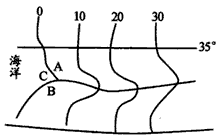第三部分:阅读理解(共20小题,每小题2分,满分40分)
阅读下列短文,从每题所给的A、B、C、D四个选项中,选出最佳选项,并在答题卡上将该项涂黑。
A
Does this situation seem familiar to you? Your English is progressing well, the grammar is now familiar, the reading comprehension is no problem, you are communicating quite fluently, but: Listening is STILL a problem! First of all, remember that you are not alone. Listening comprehension is probably the most difficult job for almost all learners of English as a foreign language. The most important thing is to listen as often as possible. The first step is to find listening resources. The Internet is really a useful tool for English students. You can download The RealPlayer from RealMedia.com. The RealPlayer allows you to use the Internet like a radio station.
Once you have begun to listen on a regular basis, you might still be frustrated (懊恼) by limited understanding. What should you do?
Here is some of the advice I give my students:
●Accept the fact that you are not going to understand everything.
●Stay relaxed when you do not understand — even if you continue not to understand for a long time.
●Do not translate what you hear into your native language.
●Listen for the general idea of the conversation. Don’t concentrate on detail until you have understood the main ideas.
I remember the problems I had in understanding spoken German when I first went to Germany. In the beginning, when I didn’t understand a word, I insisted on translating it in my mind. This method usually resulted in confusion. Then, after the first six months, I discovered two extremely important facts. Firstly, translating creates a wall between the listener and the speaker. Secondly, most people repeat themselves constantly. By remaining calm, I noticed that — even if I didn’t pay much attention I could usually understand what the speaker had said.
56. The best way to improve our listening is to _____.
A. practice as much as possible
B. find as many listening resources as possible
C. use the Internet like a radio station
D. speak naturally and read as much as possible
57. Which of the following is a good habit when listening?
A. Try to understand everything. B. Try to get the main ideas.
C. Pay much attention to details. D. Translate each word in your mind.
58. Why did the writer mention his / her experience in Germany?
A. To prove the importance of translating.
B. To show the problems of speaking a foreign language.
C. To tell us the importance of staying calm.
D. To point out an ineffective method of listening.
59. The underlined part “a wall” in the last paragraph refers to “_____”.
A. a communication barrier B. culture shock
C. language conflict D. a little misunderstanding


